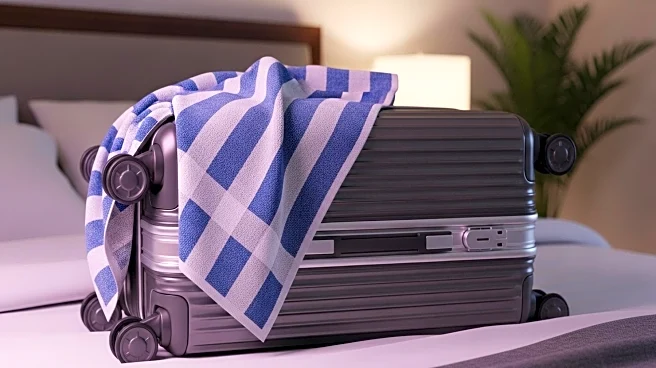What is the story about?
What's Happening?
Bleisure travel, the practice of combining business trips with leisure activities, is transforming the hospitality industry. The pandemic and the rise of remote work have blurred the lines between professional and personal lives, leading to an increase in bleisure travel. This trend allows business travelers to extend their trips for leisure, often bringing family or friends along. The hospitality industry is adapting by offering more spacious accommodations and amenities to cater to bleisure travelers, such as ergonomic workspaces and concierge services. Employers support bleisure travel as it contributes to job satisfaction and productivity, with 59% of travelers agreeing that exploring new places inspires them to be more productive.
Why It's Important?
The impact of bleisure travel on the hospitality industry is significant, as it presents opportunities to capture additional room nights and ancillary revenue. Hotels are increasingly offering amenities that cater to both business and leisure needs, such as quiet workspaces and discounts for on-property services. This trend benefits employers by encouraging employees to travel more willingly for business, boosting morale and productivity. Bleisure travel also supports employee well-being, reducing stress and enhancing job satisfaction, making it a strategic advantage for companies in attracting and retaining talent.
What's Next?
As bleisure travel continues to grow, hotels are expected to further adapt their offerings to cater to this segment. This includes providing more personalized experiences and partnering with local businesses to offer unique leisure activities. Companies may increasingly incorporate bleisure travel into their corporate policies, offering stipends for personal vacations and promoting work-life balance. The trend is likely to expand beyond millennials, attracting Gen X and other demographics who value flexibility and enriching travel experiences.
Beyond the Headlines
Bleisure travel reflects a broader cultural shift towards prioritizing employee well-being and work-life balance. It challenges traditional notions of business travel, encouraging a more holistic approach that integrates personal fulfillment with professional obligations. This trend may lead to long-term changes in corporate travel policies and the hospitality industry's approach to customer service, emphasizing the importance of personalized and enriching experiences.
















